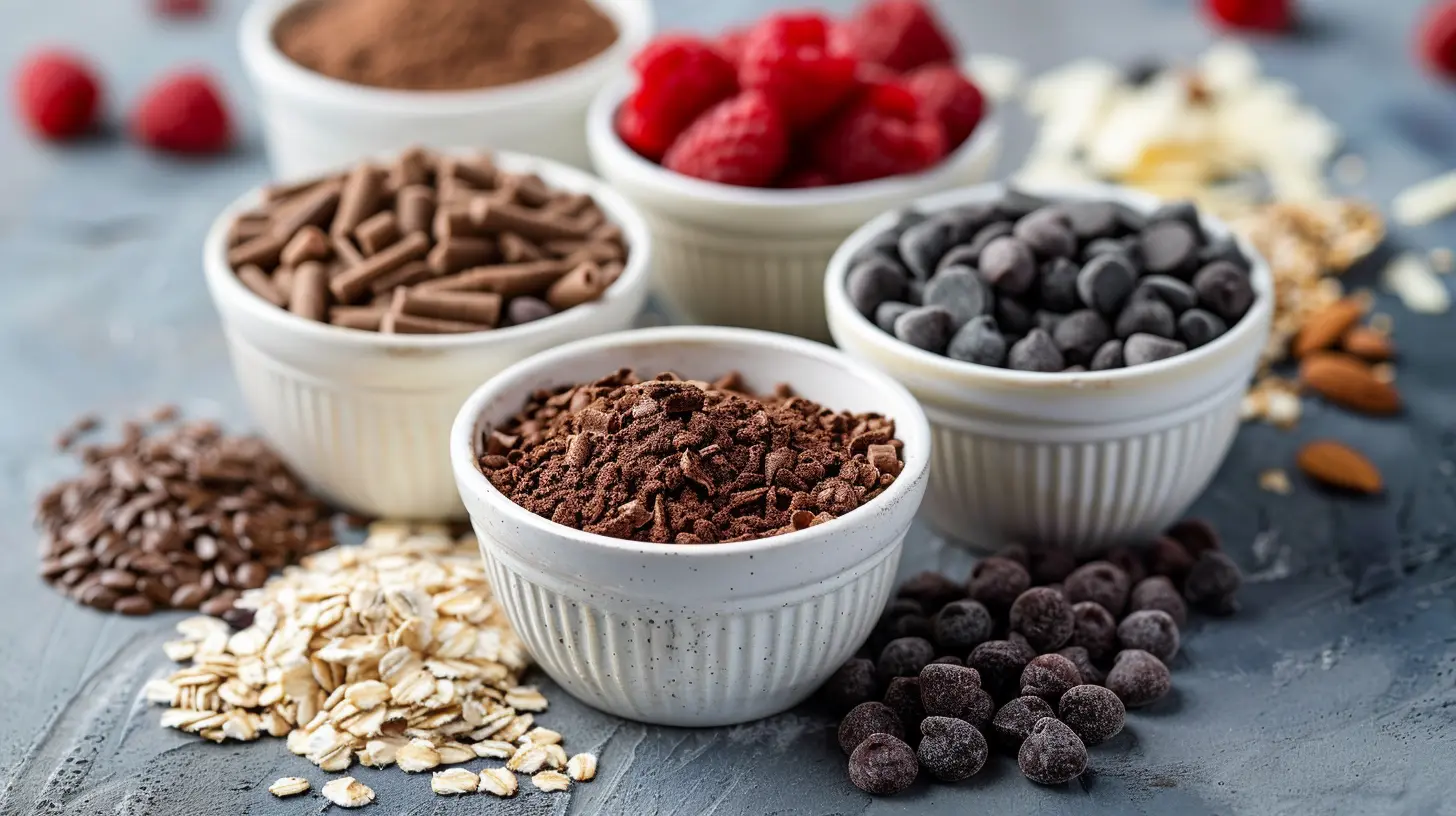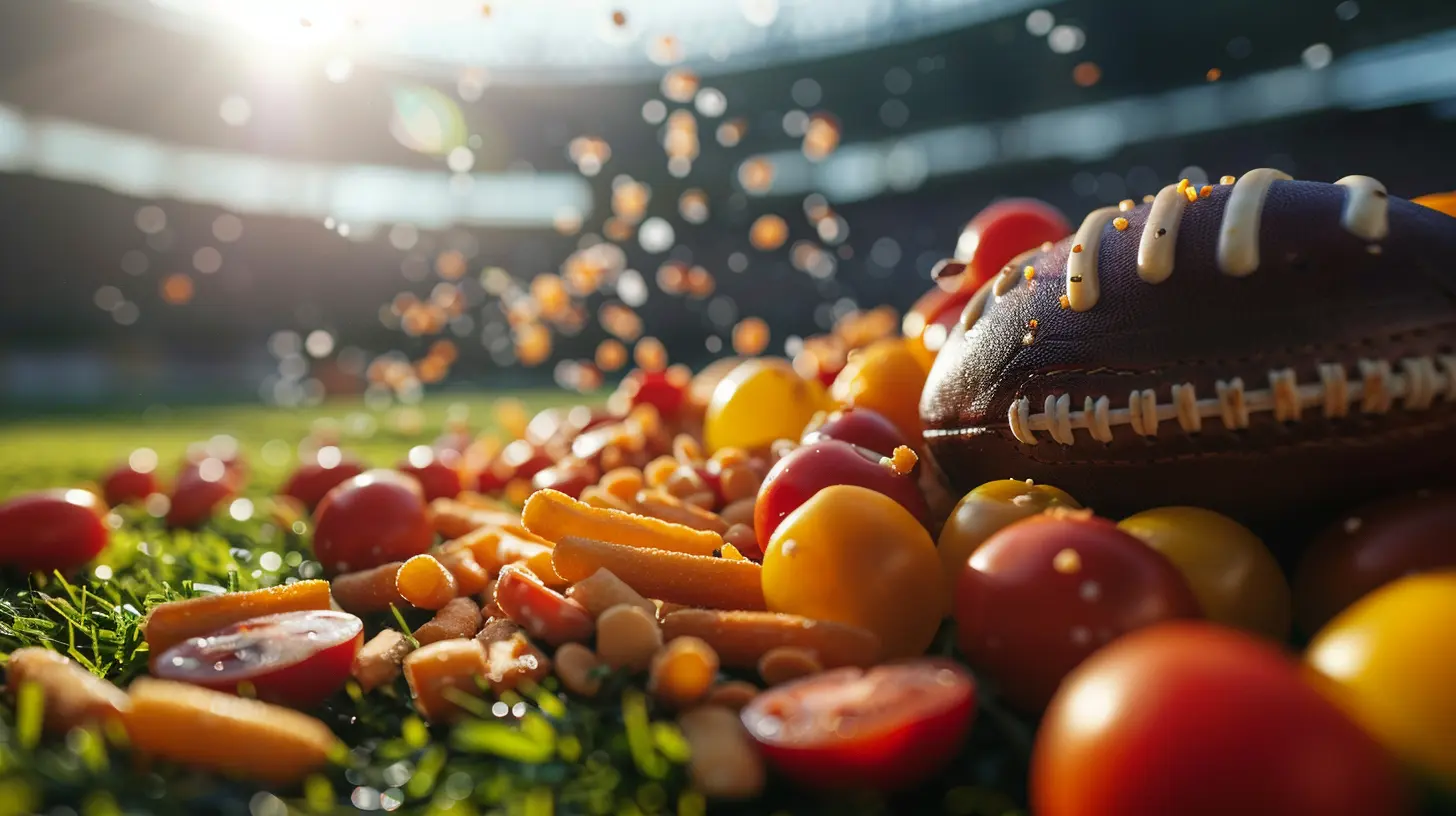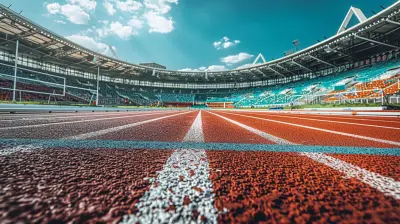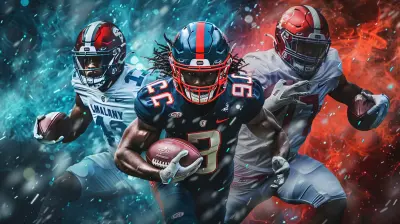The Importance of Post-Workout Nutrition for Athletes
3 January 2025
You’ve just finished an intense workout. Your muscles are sore, your heart is still racing, and you’re drenched in sweat. But what’s next? Most people simply focus on cooling down and heading to the shower, but athletes know the drill—post-workout nutrition is key. The truth is, what you consume after your workout is just as important (if not more so) than what you eat before. Why? Because after a workout, your body is like a sponge, ready to absorb nutrients to repair muscles, replenish energy, and get you ready for the next challenge. Let’s dive into why post-workout nutrition matters and how you can master it.

Why Post-Workout Nutrition Is So Important
Think of your body like a car. After a long drive (or workout), you need to refuel and maintain it so it can perform at its best the next time. The same goes for athletes. After a workout, your body is in a state of recovery. It’s depleted of glycogen (stored energy), your muscles have tiny tears, and you’ve lost electrolytes through sweat. The goal of post-workout nutrition is simple: to refuel, repair, and rehydrate.Muscle Repair and Growth
When you lift weights or do any strenuous activity, you’re essentially breaking down muscle fibers. This might sound bad, but it’s actually a good thing! Your body repairs these tiny tears, making your muscles stronger and more resilient. However, it needs the right building blocks to do so. Protein is the superhero here. Without enough protein after a workout, your muscles won’t recover properly, and you’ll miss out on the strength and growth gains you’re aiming for.Replenishing Glycogen Stores
Glycogen is the stored form of carbohydrates in the body, and it’s your primary source of energy during exercise. After a workout, your glycogen stores are depleted, especially if you’ve been doing endurance activities like running, cycling, or swimming. Replenishing these glycogen stores with carbohydrates is crucial to ensure you have the energy for your next workout.Reducing Muscle Soreness
Ever feel extra sore the day after a workout? Delayed Onset Muscle Soreness (DOMS) is a real thing, and while some soreness is normal, proper post-workout nutrition can help minimize it. By giving your body the nutrients it needs, you’re essentially speeding up the recovery process and reducing inflammation, which can help reduce muscle soreness and stiffness.Hydration and Electrolyte Balance
During a workout, you sweat—some more than others, but we all lose fluids. Along with those fluids, you lose essential electrolytes like sodium, potassium, and magnesium. These electrolytes help regulate muscle contractions and hydration levels in your body. Rehydrating and replenishing electrolytes after a workout helps maintain optimal performance and avoid cramping or fatigue.
The Essentials of Post-Workout Nutrition
So, what should you be eating after a workout? There are three core components of effective post-workout nutrition: protein, carbohydrates, and fluids. Let's break it down.Protein: The Muscle Builder
If you’ve been hitting the weights, protein is your best friend. You don’t need to overload on it, but getting about 15-25 grams of protein post-workout can work wonders for muscle repair. The protein you consume after exercise is used to rebuild muscle fibers that were torn during your workout, which helps with growth and recovery.The best sources? Think lean meats like chicken or turkey, fish, eggs, or plant-based options like tofu, lentils, or protein shakes. A lot of athletes rely on protein powders for convenience—whey protein is popular because it’s fast-digesting, but plant-based proteins are great too, especially if you have dietary restrictions.
Carbohydrates: The Energy Refueler
Carbs sometimes get a bad rap, but they’re crucial for athletes. After exercise, your body needs to replenish its glycogen stores, and carbs are the most efficient way to do that. Aim for about 1-1.5 grams of carbs per kilogram of body weight within 30-60 minutes post-exercise, especially if you’ve been doing endurance training.Good carb sources include whole grains (like brown rice or quinoa), sweet potatoes, fruits, or even a simple smoothie with bananas and oats. If you’re racing or training multiple times a day, prioritizing carbohydrate intake becomes even more important to ensure you’re fully recharged before your next session.
Fluids: The Hydration Hero
Never underestimate the power of hydration. Water is essential for maintaining bodily functions, and after a workout, you need to replace the fluids you’ve lost through sweat. Not only does drinking water help prevent dehydration, but it also aids in digestion and nutrient absorption.In addition to water, don’t forget about electrolytes—especially after a long or intense session. Sports drinks, coconut water, or even a pinch of salt in your water can help restore those lost electrolytes and keep your body balanced.

Timing: When Should You Eat After a Workout?
You’ve probably heard people talk about the “anabolic window”—that magical 30-minute period after a workout when your body is primed to absorb nutrients. While there is some truth to this, recent research suggests that the window might be a bit wider than we once thought. Ideally, you should aim to eat within 30-60 minutes after your workout, but if you can’t get to food right away, don’t stress too much; just don’t wait too long.That said, if you’re training multiple times a day or have a particularly intense workout, eating sooner rather than later will help speed up recovery and get you back in action faster.

Common Mistakes Athletes Make with Post-Workout Nutrition
Even if you're making an effort with your post-workout nutrition, there are still some common pitfalls that athletes fall into. Let’s go over a few.Skipping the Post-Workout Meal
This is a big one. After a workout, you might not feel hungry, especially if you’ve just done a tough session. But skipping your post-workout meal or snack can slow down recovery, leaving you feeling fatigued and sore longer than necessary. Even if you don’t feel like eating a full meal, a small protein shake or a banana with peanut butter can make a huge difference.Not Eating Enough Carbohydrates
Many athletes focus so much on protein that they forget about carbs. While protein is important, carbohydrates are what fuel your muscles and replenish glycogen stores. Don’t skimp on healthy carbs like fruits, vegetables, and whole grains.Overloading on Junk Food
Yes, you’ve earned that post-workout meal, but that doesn’t mean it’s a free pass to eat junk. While it’s okay to treat yourself occasionally, eating high-fat, processed foods after a workout can slow down digestion and make it harder for your body to absorb the nutrients it needs.Ignoring Hydration
We often focus so much on food that we forget about fluids. Even if you’re done sweating, your body is still working hard to rehydrate. Drink water or an electrolyte-replacement drink post-workout to help your body recover.Tailoring Post-Workout Nutrition to Your Goals
Your post-workout nutrition should also match your training goals. Whether you’re trying to build muscle, lose fat, or improve endurance, what you eat (and when you eat it) can make a big difference.For Muscle Gain
If your goal is to bulk up, focus on getting a good amount of protein and carbohydrates post-workout. A protein shake with some oats or a chicken breast with sweet potatoes can give your muscles the fuel they need to grow.For Fat Loss
If you’re trying to lose fat, you still need to eat after your workout—but you might want to focus more on lean protein and lower-glycemic carbs like vegetables or quinoa. Avoid high-sugar snacks and keep your portions in check.For Endurance Athletes
Endurance athletes (think marathon runners or cyclists) need to prioritize carbs. Your glycogen stores are your primary source of energy, and if they’re not replenished, your performance will suffer in your next session. Pair your carbs with a moderate amount of protein for recovery.
The Bottom Line
At the end of the day, post-workout nutrition is all about giving your body the tools it needs to recover and come back stronger. Whether you’re an elite athlete or just someone who enjoys regular workouts, what you eat after exercising matters. Protein helps with muscle repair, carbohydrates replenish glycogen, and fluids keep you hydrated and balanced. The key is to find what works best for your body and goals—and stick with it. So next time you finish a workout, don’t just hit the showers. Refuel, repair, and rehydrate so you can crush it again tomorrow!all images in this post were generated using AI tools
Category:
AthleticsAuthor:

Onyx Frye
Discussion
rate this article
17 comments
Owyn Hamilton
Great insights! I'm fascinated by how post-workout nutrition can impact performance and recovery. Looking forward to learning more about specific foods and timing for optimal results!
February 4, 2025 at 7:49 PM

Onyx Frye
Thank you! I’m glad you found it insightful. Stay tuned for more details on specific foods and timing to maximize your performance and recovery!
Vito Gray
Post-workout nutrition is crucial for recovery and performance. It fuels our bodies, rebuilds muscles, and allows us to strive for greatness. Every athlete needs this!
January 30, 2025 at 9:28 PM

Onyx Frye
Absolutely! Post-workout nutrition is key for optimal recovery and performance. It helps replenish energy, repair muscle tissue, and supports overall athletic goals. Thanks for emphasizing its importance!
Kismet Evans
Great insights on post-workout nutrition! It's fascinating how what we eat can significantly impact recovery and performance. I’m curious about specific recommendations for different sports and how individual dietary needs vary. Have any studies shown the long-term effects of tailored nutrition on athlete performance? Keep up the insightful work!
January 25, 2025 at 1:06 PM

Onyx Frye
Thank you for your comment! Yes, tailored post-workout nutrition can greatly affect recovery and performance, and various studies indicate that personalized dietary strategies can enhance athletic outcomes over time. I appreciate your interest in this important topic!
Calyx Fisher
Great insights! I'm intrigued by how post-workout nutrition can significantly impact recovery and performance. I wonder what lesser-known foods or supplements athletes might consider incorporating into their routines. Any recommendations for enhancing those post-workout meals? Looking forward to more tips!
January 18, 2025 at 4:56 AM

Onyx Frye
Thank you! For post-workout recovery, consider incorporating foods rich in antioxidants like berries, healthy fats like avocados, and protein sources such as cottage cheese or quinoa. Supplements like tart cherry juice and omega-3s can also aid recovery. Stay tuned for more tips!
Rocco Henderson
Fueling secrets: unlock hidden performance potential.
January 14, 2025 at 12:40 PM

Onyx Frye
Absolutely! Post-workout nutrition is key to unlocking that hidden performance potential by aiding recovery and optimizing muscle growth.
Zorion Myers
Fuel your body post-workout to maximize recovery and performance! Remember, what you eat is just as crucial as your training. Stay strong!
January 9, 2025 at 5:09 AM

Onyx Frye
Absolutely! Proper post-workout nutrition is key to optimizing recovery and enhancing performance. Fuel wisely to support your training efforts!
Faith Adams
Post-workout nutrition isn't optional; it’s essential. Skipping it is like throwing away your hard work. Fuel properly or face the consequences!
January 8, 2025 at 5:20 AM

Onyx Frye
Absolutely! Post-workout nutrition is crucial for recovery and maximizing the benefits of your training. Proper fuel ensures your hard work pays off and enhances performance.
Dusk McLaury
Great article! It's so true that what we eat after a workout can make or break our training efforts. A delicious recovery snack can really lift our spirits and keep us motivated for the next session. Fuel wisely!
January 7, 2025 at 9:55 PM

Onyx Frye
Thank you! I’m glad you found the article helpful. Proper post-workout nutrition truly plays a vital role in recovery and motivation!
Vincent Benson
Post-workout nutrition is crucial for recovery, muscle repair, and performance enhancement. Athletes must prioritize a balanced intake of protein and carbohydrates post-exercise for optimal results.
January 7, 2025 at 11:30 AM

Onyx Frye
Thank you for highlighting the key role of post-workout nutrition! Proper protein and carbohydrate intake is indeed essential for recovery and maximizing athletic performance.
Aubrey Bennett
Post-workout nutrition is crucial for recovery, muscle repair, and performance enhancement. Prioritize protein and carbohydrates within 30 minutes after exercise.
January 7, 2025 at 5:22 AM

Onyx Frye
Absolutely! Post-workout nutrition is key for optimizing recovery and enhancing performance. Prioritizing protein and carbohydrates shortly after exercise is essential for muscle repair and replenishing energy stores.
Mackenzie McFarlin
Post-workout snacks are as essential as your sweaty gym selfie. Don’t just lift—fuel like the athlete you pretend to be!
January 6, 2025 at 8:12 PM

Onyx Frye
Absolutely! Post-workout nutrition is crucial for recovery and performance, just like that gym selfie captures the effort. Fueling your body properly after workouts maximizes results and supports overall athleticism.
Adrian McTavish
Post-workout nutrition is crucial for recovery and performance. Athletes must prioritize replenishing glycogen stores and repairing muscles to enhance training results and prevent injuries. Don't underestimate the power of proper fueling!
January 5, 2025 at 9:54 PM

Onyx Frye
Absolutely! Post-workout nutrition is vital for recovery and optimal performance. Proper fueling helps replenish glycogen and repair muscles, ultimately enhancing results and reducing injury risk. Great point!
Ford Patterson
Great article! Post-workout nutrition is essential for recovery and performance. Fueling our bodies properly after a workout can make all the difference in achieving our athletic goals. Keep shining!
January 5, 2025 at 12:11 PM

Onyx Frye
Thank you for your kind words! I completely agree—proper post-workout nutrition is vital for recovery and achieving athletic goals. Keep fueling your journey!
Linnea Malone
Great article! Post-workout nutrition is indeed crucial for recovery and performance. Athletes should prioritize balanced meals rich in protein and carbs to optimize their training results and overall health.
January 4, 2025 at 9:00 PM

Onyx Frye
Thank you! I completely agree—balanced post-workout nutrition is vital for maximizing recovery and enhancing performance.
Celeste Klein
Great read! It’s fascinating how post-workout nutrition can influence recovery and performance. I’m curious about specific foods that athletes find most beneficial—any insights on optimal choices for different activities?
January 4, 2025 at 1:17 PM

Onyx Frye
Thanks for your comment! Athletes often find foods rich in protein (like chicken, fish, or legumes) and carbohydrates (such as quinoa, sweet potatoes, or fruits) beneficial for recovery. For endurance activities, a mix of carbs and proteins post-workout is ideal, while strength training may require a higher protein focus.
Valerie Baker
Great article! Post-workout nutrition is crucial for recovery and performance. Athletes should focus on balanced meals with protein and carbs to maximize their training efforts.
January 4, 2025 at 5:48 AM

Onyx Frye
Thank you for your feedback! I completely agree—balanced meals with protein and carbs are essential for optimal recovery and performance.
Joy Warner
Great insights! Post-workout nutrition is crucial for recovery and performance. It’s essential for athletes to prioritize their diets just as much as their training to optimize results. Thank you for highlighting this!
January 3, 2025 at 7:58 PM

Onyx Frye
Thank you for your thoughtful comment! I completely agree—post-workout nutrition is vital for maximizing recovery and performance. It truly is a key component of an athlete's success.
MORE POSTS

A Closer Look at the Importance of Midfield Playmakers

Defying Gravity: Athletes Who Reached New Heights in Their Fields

The Draft’s Biggest Boom-or-Bust Candidates

The Globalization of Professional Sports: What Does It Mean for Fans?

The Role of Coaches in Developing Professional Sports Dynasties

How Professional Sports Athletes Prepare for Championship Games

Moments That Made History: Record-Breaking Feats in Sports

Freestyle BMX: Tricks, Tips, and How to Defy Gravity

Hidden Talents: Players Flying Under the Draft Radar

Why This Transfer Window Is Crucial for Relegation Fighters

The Best Drills for Improving Your Sprinting Speed